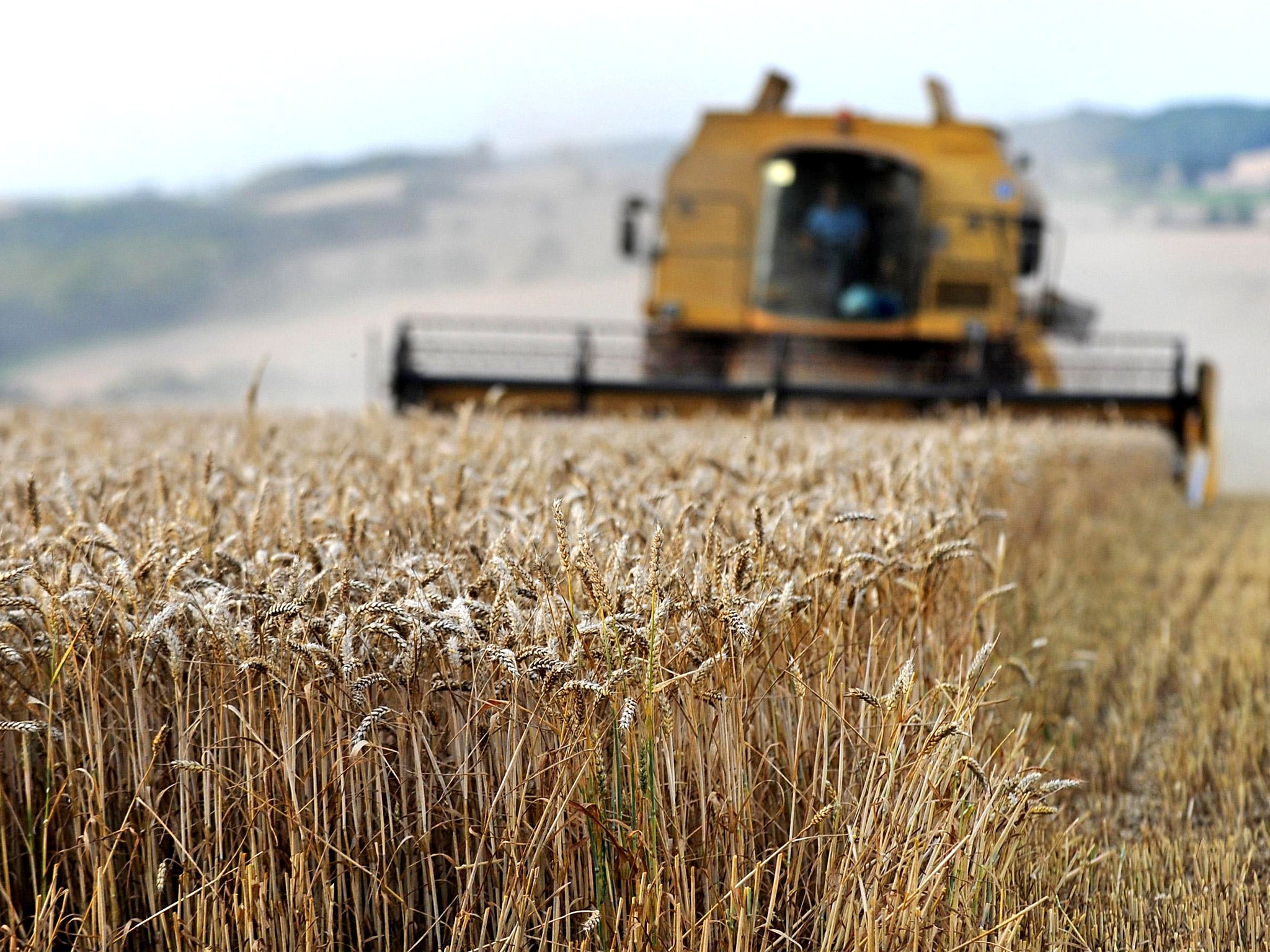Water shortages for farmers ‘will make Britain dependent on imported crops’

Farmers face a severe water shortage that could put a considerable extra strain on the nation’s resources and make Britain increasingly reliant on imported crops, a government committee warns.
Global warming is expected to lead to hotter, drier summers that reduce the amount of rainfall available for plant irrigation, at the same time as the increasingly parched soil requires more water, according to a report by the Committee on Climate Change (CCC).
Within a decade, farmers could face a water shortfall of 115bn litres a year – almost half of the 240bn litres they currently use – with the south and east of the country, where most crops are grown, likely to be hit particularly hard. This could make it difficult – and more expensive – to grow water-intensive crops such as potatoes, carrots and fruit, the CCC warns.
Furthermore, with water supplies to households and businesses already under huge pressure, farmers may not be able to rely on tap, or public, water to make up the shortfall, said Lord Krebs, chairman of the CCC’s adaptation sub-committee.
Britain’s farmers source about half of their water from the tap, with the remainder coming from so-called abstraction – from rivers, lakes and groundwater.
“Our analysis shows we are putting future agricultural production at risk. There are particular risks from climate change to future irrigation for crop production,” Lord Krebs added. In England, about three-quarters of the land is given over to agriculture, which produces about 60 per cent of the food consumed domestically, down from 70 per cent in the 1980s.
It is unclear how badly yields would be affected by the water shortage, the CCC said. It depends how successfully farmers can mitigate the shortage through additional rainfall storage capacity and more efficient irrigation, and how much extra water they can siphon off from the public tap, already strained by the demands of a growing population.
However, at the very least the looming water shortage is likely to increase costs for farmers significantly, as they invest in storage facilities and irrigation equipment at a time when they are already struggling financially, experts said.
Subscribe to Independent Premium to bookmark this article
Want to bookmark your favourite articles and stories to read or reference later? Start your Independent Premium subscription today.

Join our commenting forum
Join thought-provoking conversations, follow other Independent readers and see their replies